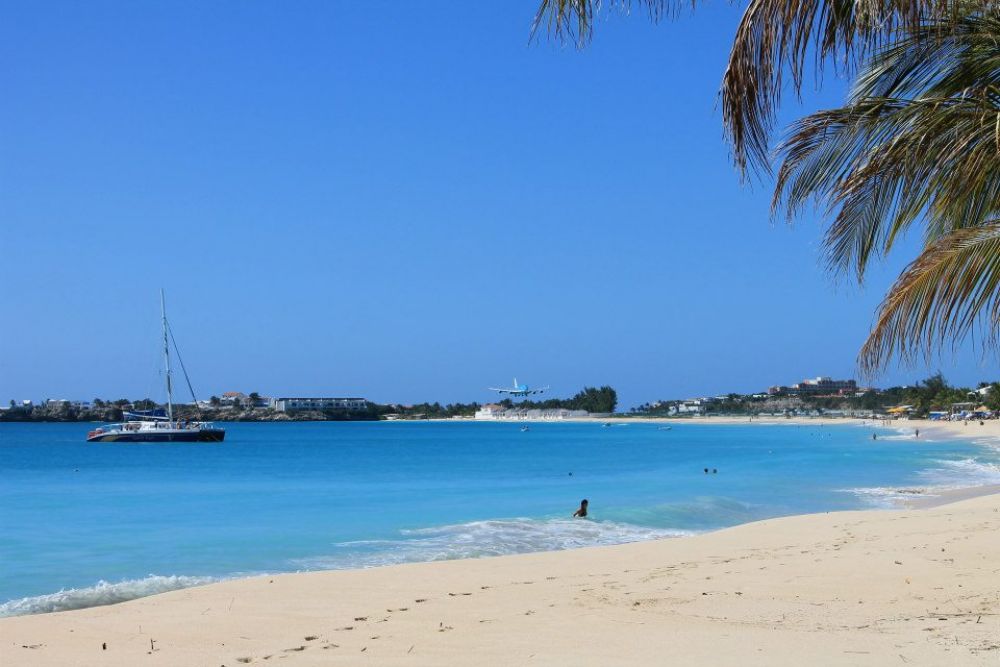“Our tourist product has deteriorated over the years”
Before he announced a game changer for St. Maarten’s tourism driven economy (see our front page story), Finance Minister Richard Gibson painted a bleak picture of the world economy during his lecture Inequality and Demand at the university last night.
“The world is in turmoil,” the minister said, followed by references to the Brexit, the astronomical debts of Greece, the terror attacks in France, the near bankruptcy of Puerto Rico and “a mad man named Trump who can become president and leader of the free world. Uncertainty reigns everywhere and sustainable economic development has become elusive.”
Minister Gibson presented his findings from a trip to a meeting of the Economic Commission for Latin America and the Caribbean (ECLAC) in Mexico a couple of months ago. The experience made him realize how isolated St. Maarten is: “Important trends and developments worldwide that seriously affect our development and information that is essential to be able to plan and make informed policy decisions pass us by like ships in the night.”
St. Maarten has to participate in international conferences to stay abreast of worldwide developments, the minister said.
He noted that according to the IMF the country is caught in a middle income development trap. “Global economic inequality is increasing and seriously affecting the economies of developing countries. Globalization has done nothing for St. Maarten, because we have no multinationals that sell or factories that produce products for foreign markets. We produce no agricultural products for export or even for local consumption.” The country also does not have access to the international industrial and financial business structure that accommodates globalization.
Minister Gibson noted that while there is excess liquidity in the international economy, that money is not being invested in the real economy. “The climate for borrowing is at its most attractive level, but investments are declining.”
The minister said that financial assets and derivatives are being hoarded rather than invested these days. As an example he mentioned Morgan Stanley, a conglomerate that had spent billions of dollars on cheap oil that it stores for years to sell the product later on for huge profits.
In 2014600 trillion dollars was accumulated in financial derivatives and 200 trillion in financial assets. That 800 trillion did not go back into the real economy to create new jobs and increase economic activity, Minister Gibson said.
He noted that GDP growth in the US of A is projected at a measly 1 percent this year. St. Maarten used to show a 4 percent growth, but last year it dropped to 0.5 percent and this year it is expected to be 0.9 percent.
The world economy is in decline, Minister Gibson continued, pointing to an expected 7 percent drop in container shipments this year. “Billions of dollars in manufactured goods will not be shipped because of a lack of demand worldwide.”
The minister said that demand will not grow, unless something is done about inequality; the richest 1 percent of the population in Western Europe holds 31 percent of all wealth, while the poorest 40 percent owns just 1 percent. “The majority of people are now unable to buy the products the world manufactures.”
China is the exception in this somber scenario: “It has become the foremost economic and geopolitical power and has regained the status it held until the end of the eighteenth century,” Minister Gibson said, adding that the country has experienced 10 percent annual economic growth for almost three decades.
There is a battle raging between China and the United States “for the heart and souls of and for alliances and commercial ties with peoples of different countries, entering into massive trade agreements,” Minister Gibson said.
St. Maarten is not included in any of these agreements. Even if we were, we would have nothing to offer, because we have nothing to trade, except sun, sea and sand. If our economic survival depends on tourist services, our product has to be second to none.”
That is however not the case, Minister Gibson said: “Our tourist product has deteriorated over the years. There has been a lack of attention and lack of care to make out tourist product the best in the region. Each man, woman and child should know this; we have to create access to quality hospitality education and training with the aim of producing hotel managers and other hospitality experts to support the hospitality industry. Without a serious overhaul of our tourist product, it will continue to deteriorate.”
However, after this glum picture, Minister Gibson ended on a bright note with his announcement about the deal with Chinese investors. See our front page story for details.






